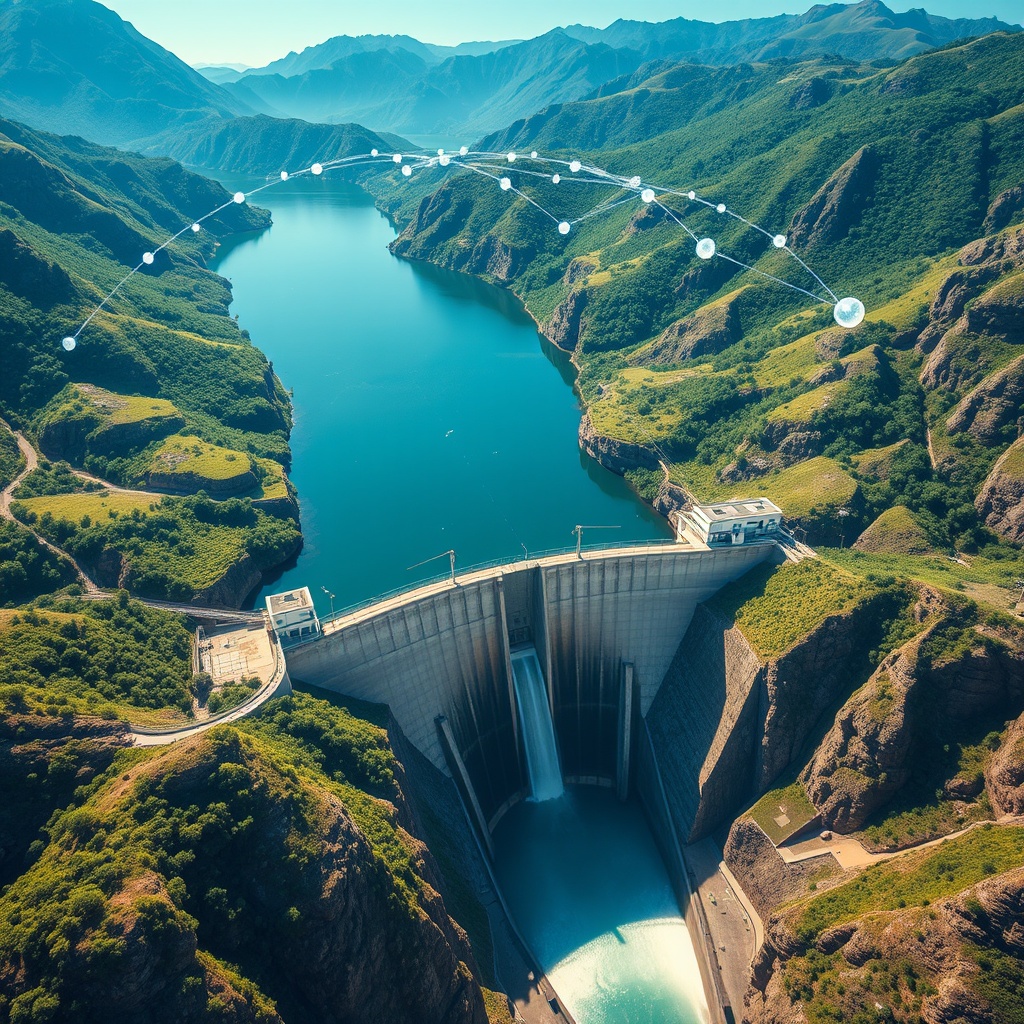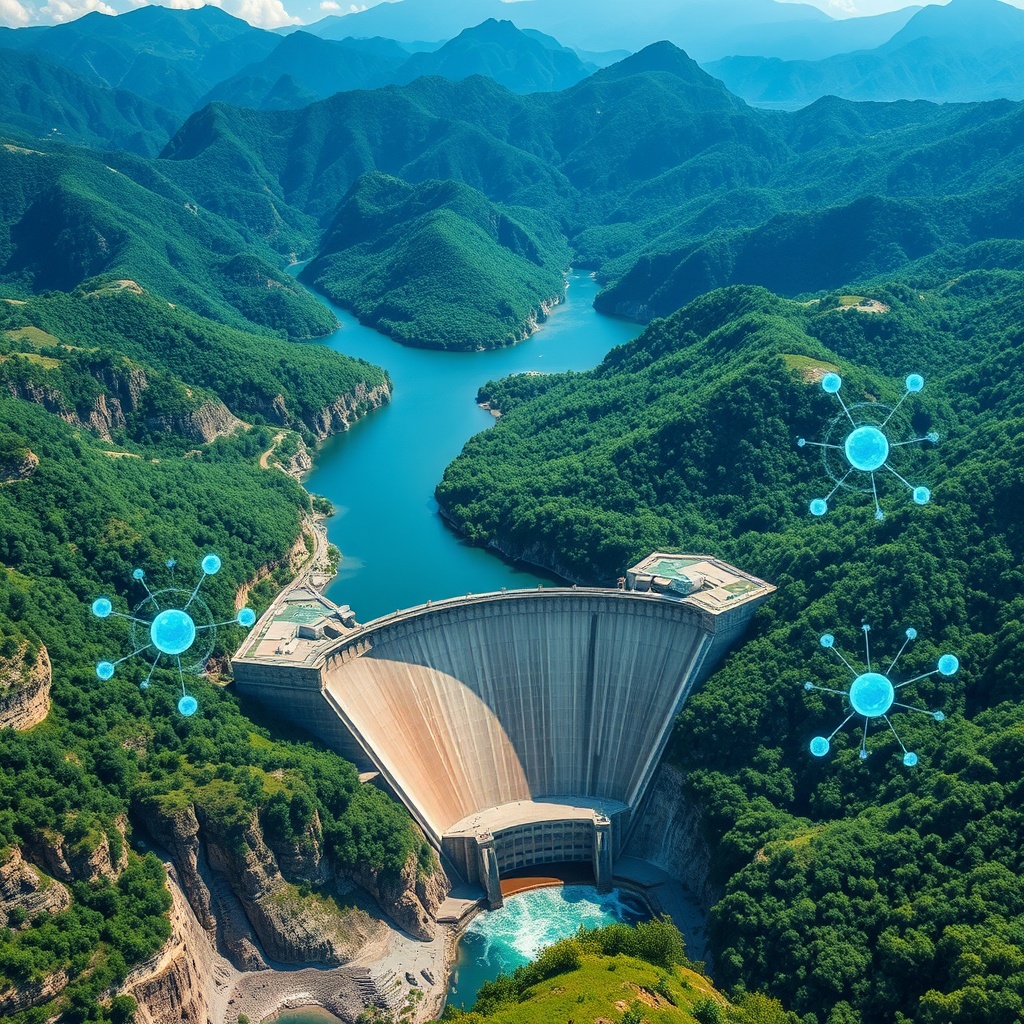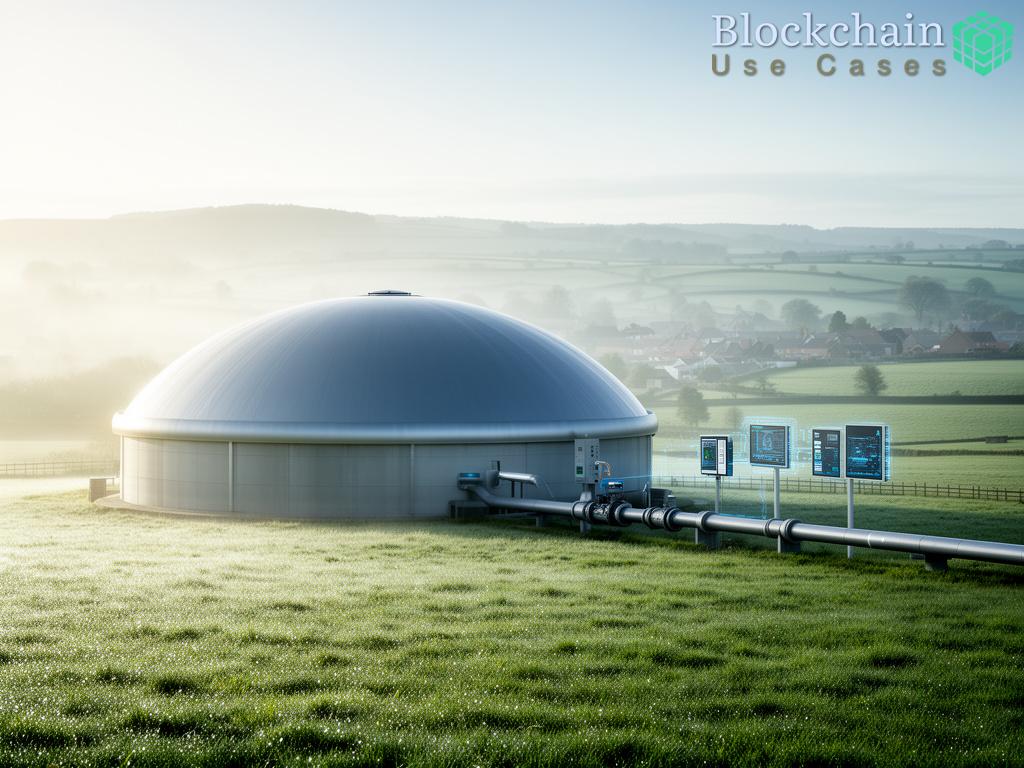Introduction to the Convergence of Blockchain and Hydroelectric Management

The intersection of blockchain technology and hydroelectric dam management is poised to redefine water rights and operational efficiencies in the energy sector. As global demand for renewable energy surges, the integration of blockchain offers unprecedented transparency and accountability in water resource management. This article explores how blockchain is revolutionizing the operational landscape of hydroelectric facilities and the implications for water rights.
Enhancing Transparency and Traceability in Water Rights
Water rights have traditionally been governed by complex legal frameworks and bureaucratic processes, often leading to disputes and inefficiencies. Blockchain technology introduces a decentralized ledger that records every transaction related to water usage, ensuring a transparent and immutable history of rights allocation and usage. By utilizing smart contracts, stakeholders can automate the enforcement of water rights agreements, significantly reducing the potential for conflicts.
Key Benefits of Blockchain in Water Rights Management:
- Immutable Records: All transactions are permanently recorded, providing a clear audit trail.
- Smart Contracts: Automate compliance with water rights agreements, reducing administrative overhead.
- Decentralized Access: Stakeholders can access real-time data on water usage and rights, fostering trust and collaboration.
- Dispute Resolution: Clear records facilitate faster and fairer resolution of disputes.
Streamlining Operations and Enhancing Efficiency
Hydroelectric dam management involves complex operational workflows, from water allocation to energy generation. Blockchain can streamline these processes by providing real-time data sharing among all stakeholders, including government agencies, energy producers, and environmental organizations. This leads to improved decision-making and operational efficiency, as data can be accessed and analyzed in real-time.
Furthermore, the integration of IoT devices with blockchain can automate the monitoring of water levels, flow rates, and energy production, ensuring optimal performance and compliance with regulatory standards. This synergy not only enhances operational efficiency but also promotes sustainable water resource management.





